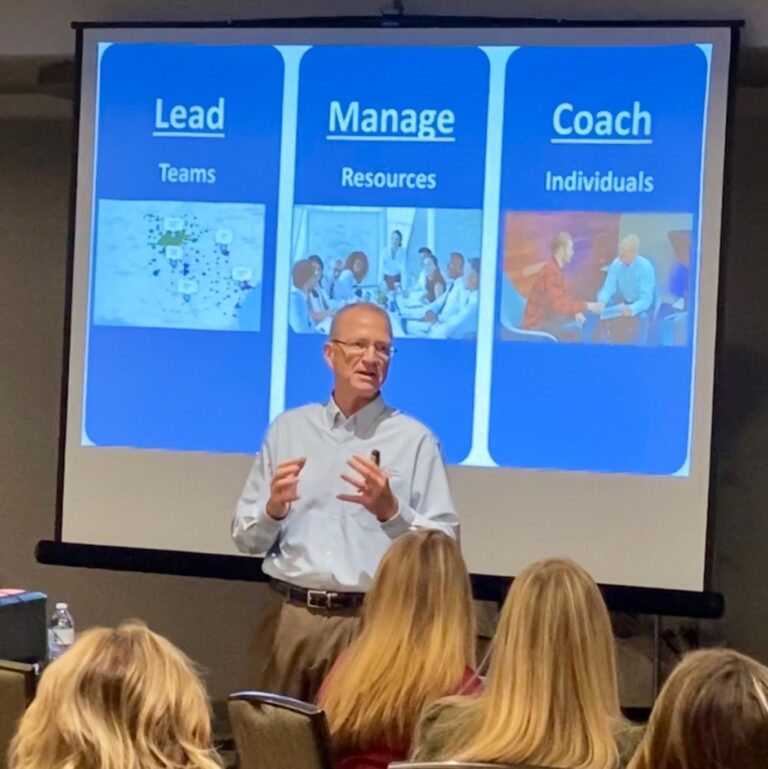And the mental minefield you must navigate to use these truths
- Your time management skills are far more important than your selling skills!
Sure, selling skills are great and necessary to succeed. Asking good questions, how to present your products, closing, and dealing with objections. However, I see more people who fail in their time management skills than in their selling skills. Most salespeople can go out there, fumble through a sales call, and only 50% of the time will they take a shot by asking for the sale. When they fail and want help, they often think it’s in their selling skills. However, I found that it’s time and territory management skills that really are the limiting skills between top performers and medium or poor performers.
Skills like:
- Which customers or prospects to call on?
- Managing their time between the office and being in front of customers.
- Routing their drive times better when they cover large geographies.
- The decision to prospect versus calling on current customers.
2. Confidence: To convince customers to buy, you have to be convinced!
Confidence in your products, your company, and yourself is crucial to top-performing sales results. Working with salespeople, I find this to be a frequent struggle. When they have poor results on their sales calls, they reference their product performance, their company problems, pricing issues, or possibly their technical abilities.
My advice to them is, “Go build your confidence!” Before you leave the office or set out into your sales territory, go build your confidence. And, no, you can’t fake confidence. You must be certain that your products help your customer solve their specific problem. You have to work on yourself first and continuously over the course of your career. Next, you have to continuously strive for an improved understanding of your company and its strengths and weaknesses. Strive to learn them and to improve them. That builds confidence versus some form of acting confident. To me, faking confidence just comes across as phony.
3. Sales is work!
The more you work, the more you sell. I know at times; you had success come easy. Yet, other times, you worked hard but had no success. Throw these anomalies out over the course of a 35-year career and you will find this tiny but very important truth to be, well, true!
Sales work includes:
- Pre-call planning
- Developing an agenda for your sales calls
- Constantly trying to plan your schedule as best you can despite the seasonality of our business
- Taking good notes on sales calls
- Following up on every action item you promised
4. Cold calling never killed anyone!
At every training workshop I put on, cold calling and prospecting are always top requests. Mostly, because so many salespeople dread the thought of it. So, I developed a small set of questions that helps them get a different perspective on their fear. I ask them, “In your entire career. What was the worst thing that ever happened to you on a cold call?” In a room of twenty people, I might have 200-300 years of selling experience. In all those years, I have yet to find anyone who was harmed by making a cold call on a customer. A few dog stories might pop up, but nothing serious. Or, maybe a customer was short with them and told them to leave…slammed a door in their face possibly.
Nothing terrible happened! Not in 300 years of sales calls did one person get beat up, shot at, or have something thrown at them. So, what is the fear and how can you reframe that fear? How can you stop worrying about something that is probably never going to happen?
5. Pushy versus Focused Selling
The next biggest training request I get from sales teams is how to close, handle objections, and not be salesy/pushy. If you did your job as a good salesperson, is it too much to ask for the sale? I mean, you segmented the market to know who you should be selling, then did a solid pre-call plan, followed by getting in front of the customer to ask high-value questions, diagnose a solution to their problem, and position that solution to them in their DISC style (not yours). With all of that effort and resources put into the sales call, is it really too much to ask them to take the next step with you?
6. DISC helps us implement the Platinum Rule: “Treat others as they want to be treated”
Most of us grew up on the golden rule of treating others as we want to be treated. While that is nice, customers don’t think so. DISC trains us on the four different personality quadrants that people fall into. More importantly, it tells us how to communicate and sell to people in those four quadrants. If you’re unfamiliar with DISC, you really need to understand the power of this tool. Reach out and I’m glad to share how I use it. You can also go to my blog or podcast page and search for the five or so articles I have written on his subject.
7. You have a brand!
And when I say you, I mean you as an individual salesperson. Even if you work for a large corporation, your customers see you first. Are you trustworthy? Do you get back to them promptly? Are you easy to do business with? How technically competent are you at your job? And do you try to fake competence or are you honest with them about your limitations? These are the first brand impressions a customer has about you.
Work hard on developing that personal brand in the market. It will pay huge dividends as your company brand may have challenges over the course of your career. Your personal brand is what customers consider first when deciding to do business with you.
8. Stories – the important tool that few salespeople learn to use!
No matter how hard you try, when you sell, you are always going to be on the other side of the counter from the customer. They will always see you as having some level of bias towards your products. You can certainly develop your relationship with customers so they view you as a trusted advisor. This is great. I am a firm believer in this part of your selling skills journey. As a matter of fact, I train teams on how to develop into the Trusted Advisor with their customers.
But I also know that you can never completely remove that concept entirely from a customer’s mind. You sell products…you get a commission on that sale…. you are biased. So, customers can often find it difficult to identify with us or connect with our sales presentations.
Stories are the ultimate tool to connect your products with someone who this customer can immediately identify with….a previously successful user of your products. When you advise your customer to use your product, you are selling. When you tell your customer about three other customers just like them who used this product with great success, now you have their attention.
Learn how to develop great selling stories.
9. Zig Zigler told us, “You can have everything in life you want if you will just help enough other people get what they want!”
It’s always about the customer. Every sales call, cold call, phone call, email, or text is about them and solving their problems. Start your sales calls with this thought in mind. Seek to understand the customer. Then, position your product to help them get what they want. The purpose of a sales call is to see how your products can help that individual customer. So, start by understanding each and every individual customer!
10. All sales are emotional!
Too often, we disregard the emotions of our customer in their decision to buy. We think those aren’t important. Partly because our customer tells us how bottom-line driven, they are. They will say, “It’s all about price”. Sure, price is a component of value. Yet, all around their farm are emotional purchases and decisions…their red or green tractor…their house or truck……farming practices that don’t ROI but they “enjoy” (cattle might fall into this category often). Maybe they farm the way their dad did or the way it’s always been done. When you see or hear those actions, remember that is an emotional decision.
Find the emotion and you have found your way to the sale. It takes a bit more time and it requires you to work a bit harder. And, I also know it prevents you from just bringing them a cheaper price, which is what they tell you they want. However, it’s up to us as professional salespeople to find what they are truly looking for and help them get there.
I hope you find these 10 tiny truths to be as impactful in your selling life as I have over the years.


